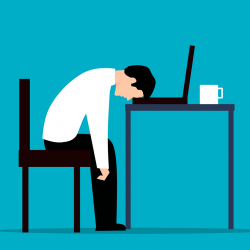To provide the best experiences, we use technologies like cookies to store and/or access device information. Consenting to these technologies will allow us to process data such as browsing behaviour or unique IDs on this site. Not consenting or withdrawing consent, may adversely affect certain features and functions.
The technical storage or access is strictly necessary for the legitimate purpose of enabling the use of a specific service explicitly requested by the subscriber or user, or for the sole purpose of carrying out the transmission of a communication over an electronic communications network.
The technical storage or access is necessary for the legitimate purpose of storing preferences that are not requested by the subscriber or user.
The technical storage or access that is used exclusively for statistical purposes.
The technical storage or access that is used exclusively for anonymous statistical purposes. Without a subpoena, voluntary compliance on the part of your Internet Service Provider, or additional records from a third party, information stored or retrieved for this purpose alone cannot usually be used to identify you.
The technical storage or access is required to create user profiles to send advertising, or to track the user on a website or across several websites for similar marketing purposes.
 Half of workers in the UK (50 percent) say their employers have provided support for their mental health during the COVID-19 pandemic, while two-thirds of employees globally reported the same (65 percent). This may illustrate a growing awareness and concern from businesses about the potential psychological impact on staff, according to a new study People at Work 2021: A Global Workforce View by the ADP Research Institute. (more…)
Half of workers in the UK (50 percent) say their employers have provided support for their mental health during the COVID-19 pandemic, while two-thirds of employees globally reported the same (65 percent). This may illustrate a growing awareness and concern from businesses about the potential psychological impact on staff, according to a new study People at Work 2021: A Global Workforce View by the ADP Research Institute. (more…)






 HR leaders, heads of real estate and IT decision-makers have not always spent huge amounts of time working together – their roles and responsibilities have often been siloed. But in the new world of work, that’s all changing. These three groups of senior leaders are being asked to collaborate on one of the biggest challenges corporate occupiers, as they try to figure out when and how to return to office-based working and shape the future of work. Failure to collaborate will increase the probability of workplaces having low occupancy rates, low employee engagement and decreased productivity.
HR leaders, heads of real estate and IT decision-makers have not always spent huge amounts of time working together – their roles and responsibilities have often been siloed. But in the new world of work, that’s all changing. These three groups of senior leaders are being asked to collaborate on one of the biggest challenges corporate occupiers, as they try to figure out when and how to return to office-based working and shape the future of work. Failure to collaborate will increase the probability of workplaces having low occupancy rates, low employee engagement and decreased productivity. 
 Mobile access company
Mobile access company 
 When it comes to conversations about work and workplaces, the past year has offered a fully immersive experience. Everybody now has an opinion. Inevitably some of them are better informed and more rooted in experience than others. So, after a full year of talk and as we return to some form of routine working life, the time has come to take stock. Few organisations and people will remain untouched by the sudden shift in attitudes towards working life, so we asked four workplace experts for their views on the current state of play.
When it comes to conversations about work and workplaces, the past year has offered a fully immersive experience. Everybody now has an opinion. Inevitably some of them are better informed and more rooted in experience than others. So, after a full year of talk and as we return to some form of routine working life, the time has come to take stock. Few organisations and people will remain untouched by the sudden shift in attitudes towards working life, so we asked four workplace experts for their views on the current state of play. 
 The real estate industry needs to transform to serve the needs of people and cities in the next decade, according to a new report released by the
The real estate industry needs to transform to serve the needs of people and cities in the next decade, according to a new report released by the 
 “Hi Dougie – how’s the new hybrid workplace going?”
“Hi Dougie – how’s the new hybrid workplace going?”
 Earlier this month the
Earlier this month the 
 Many of us are looking forward to a summer of relative freedom, with road-mapped milestones that will grant us more opportunities to see our friends and family. But we’ll be carrying the effects of months of isolation into those meetings, including a sense that our social skills will need dusting off, and our wits will need sharpening. The mental effects of lockdown have been profound. Social isolation has been shown to cause people’s
Many of us are looking forward to a summer of relative freedom, with road-mapped milestones that will grant us more opportunities to see our friends and family. But we’ll be carrying the effects of months of isolation into those meetings, including a sense that our social skills will need dusting off, and our wits will need sharpening. The mental effects of lockdown have been profound. Social isolation has been shown to cause people’s 
 A
A 


 During the pandemic, 1 in 4 (25 percent) employees say they’ve had no wellbeing check-ins from their workplace. The research from
During the pandemic, 1 in 4 (25 percent) employees say they’ve had no wellbeing check-ins from their workplace. The research from 








June 4, 2021
Expect to see a growing number of people with the job title Head of Remote
by Jo Deal • Comment, Flexible working